Staff
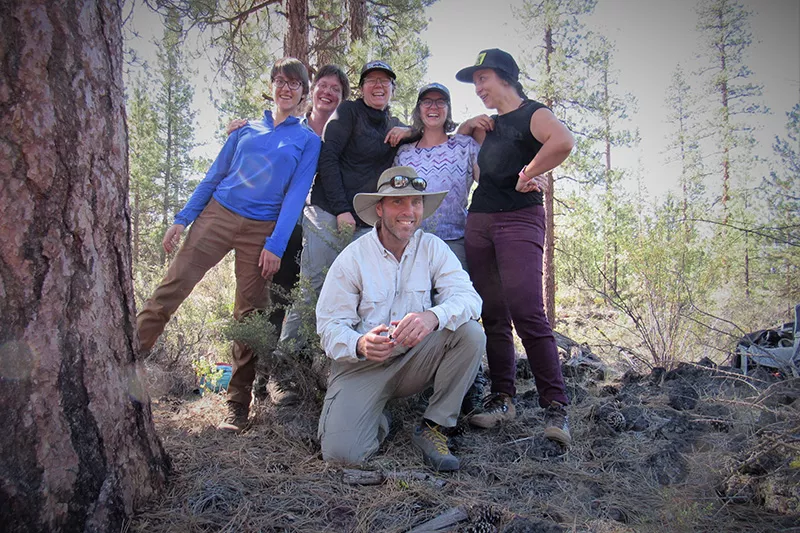
Matt Shinderman, Director
Matt serves as the fearless leader of the HERS Lab in addition to his duties as a senior instructor of natural resources and the program lead for the sustainability double degree at OSU-Cascades. He teaches courses ranging from endangered species ecology to rangeland ecosystems. His scholarly interests include ecological restoration and species adaptation to climate change. Under the HERS umbrella, Matt has helped develop the East Cascades Native Plant Hub and is working with the National Park Service to manage a park studies unit at OSU-Cascades. He is also involved in the wildlife crossing structure research being conducted at the lab. His work is focused on collaborative, applied science, which allows the HERS Lab to serve as a nexus for research, management recommendations, and curricula related to management of natural resources in the Pacific Northwest.
OSU-Cascades profile
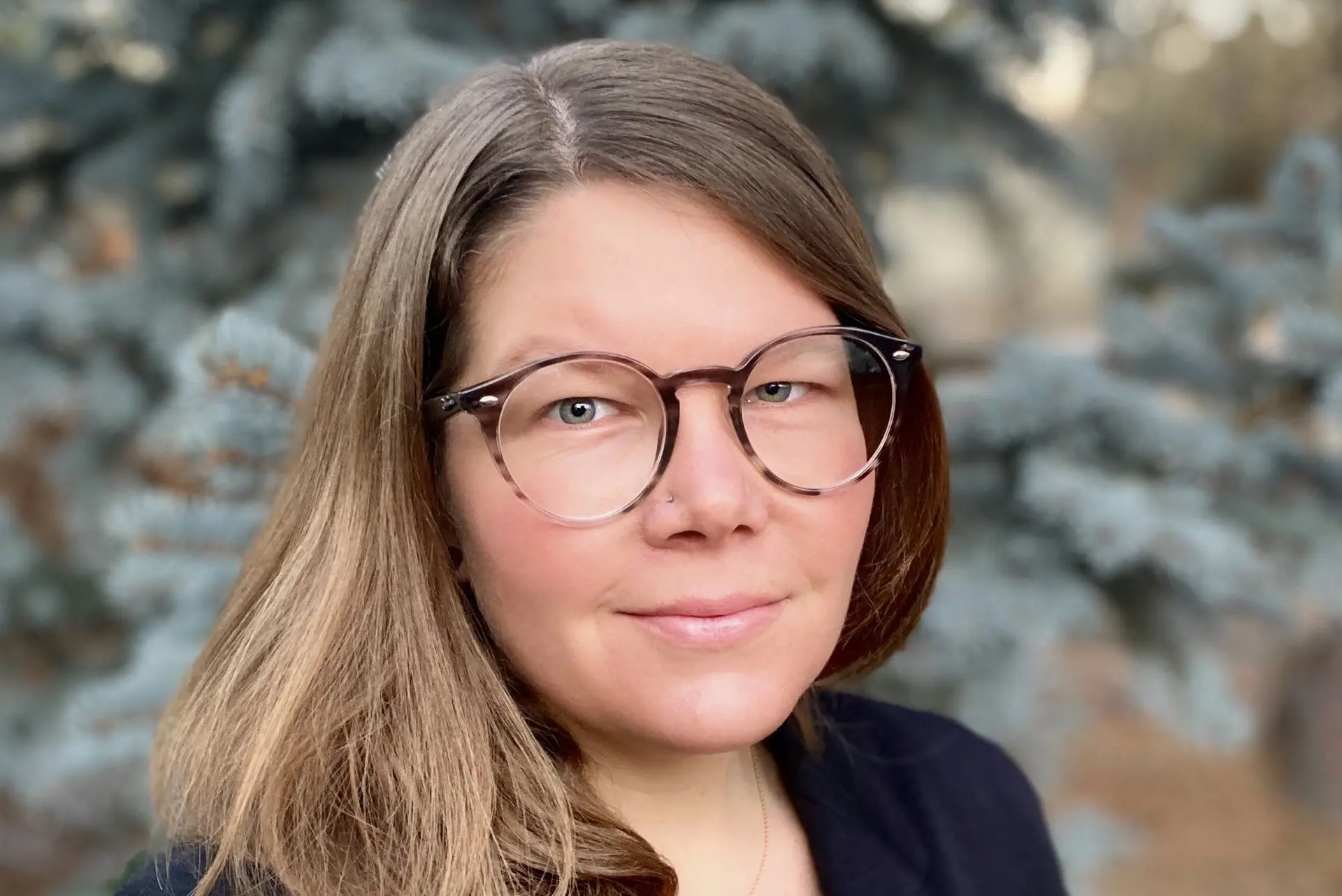
Corrinne Dombrowski, Project Lead
Corrinne has been a member of the HERS Lab since 2017, bringing expertise from her BS in Natural Resources and MS in Environmental Science with an emphasis in Ecology. Her research career began with studies of American pika occupancy in lava flows. Today, her work focuses on improving habitat connectivity by evaluating wildlife crossing structure performance and developing decision-support tools to guide statewide crossing structure placement. She integrates spatial analysis and statistical modeling to inform transportation planning and collaborates with agency and nonprofit partners to help reduce wildlife-vehicle collisions and support habitat connectivity. But don't let the nerdy job description fool you, she isn't afraid to put on some hiking boots and get her hands dirty out in the field.
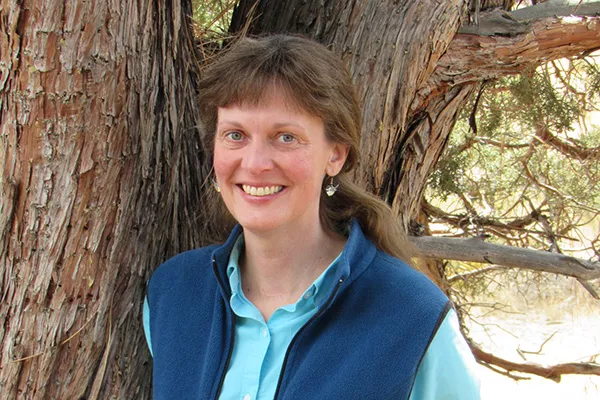
Diana Popp, GIS Specialist
Diana is a wildlife biologist and research analyst at the HERS Lab, where she specializes in exploring satellite imagery, sourcing spatial data, and designing maps and applications for various ecological projects. She holds a Bachelor of Science from The Evergreen State College, with an emphasis on field studies, and a post-baccalaureate certificate in GIS. Diana coordinated a five-year study of American pikas across three national parks and the Newberry National Volcanic Monument in Oregon. Her previous field research includes observational studies on wintering and nesting bald eagles, Oregon silverspot butterflies, and cavity-nesting birds. Currently, she is focused on mapping landscape and wildlife data for ongoing wildlife crossing research projects at the lab.
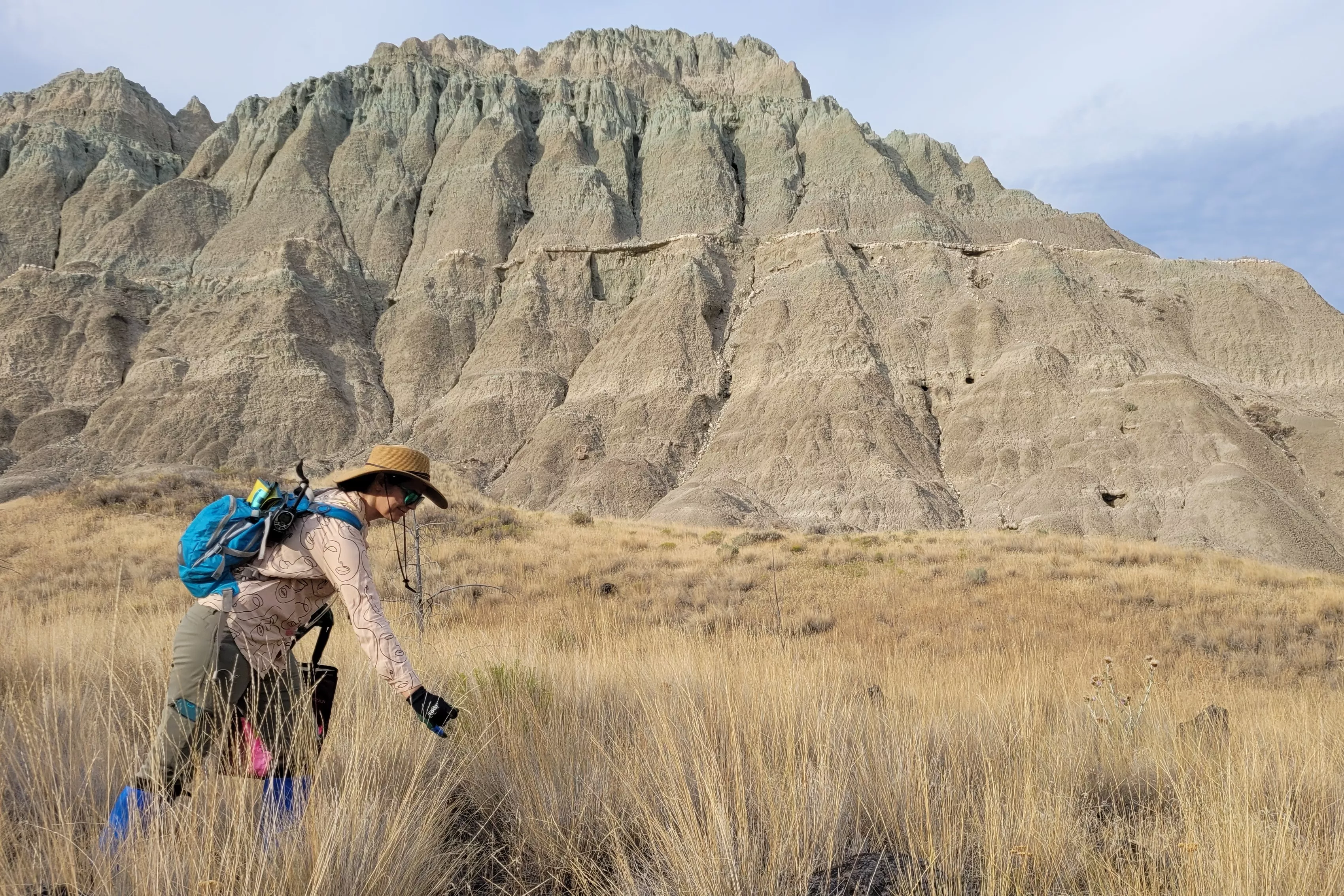
Emily Zamarripa, Propagation Coordinator
Emily tagged along during pika surveys in 2017, made herself at home, and never seemed to leave. “The lab never had a chance…” Emily recalls. Since her humble beginnings as a volunteer, Emily earned her BS in Fish and Wildlife Sciences from OSU and completed three research fellowships, building underwater fish cameras and researching white bark pine genetics for disease resistance. She later interned with the Upper Deschutes Watershed Counsel and monitored pre- and post-restoration of Whychus Creek. Prior to field research, Emily was an account manager for Verizon Wireless, traveling the Oregon Outback and working with small business owners. After climbing the corporate ladder, Emily was ready for a new challenge. “I was ready to let Nature take the wheel,” Emily explains. Today, Emily entertains the lab with tales of native plants, native plants, and more native plants.

Sara Rose, Assistant Bat Hub Coordinator
Sara joined the HERS Lab in 2018 as a seasonal field technician for the Bat Hub. Since then, she has served as crew lead and assisted with data management, call processing, volunteer management, and community outreach. Currently, Sara serves as the Assistant Bat Hub Coordinator and assists with field crew management for regional bat monitoring projects. She also runs the Audible Bats Project, a hybrid approach to bat monitoring that incorporates citizen science and professional surveys at a regional scale. Sara received her BS from Oregon State University - Cascades in natural resources fish and wildlife conservation. In addition to her work with the bat crew, she completed wildlife research internships with the Deschutes National Forest and with Cardiff University at their research center in Malaysia and monitored pygmy rabbits for the Oregon Department of Fish & Wildlife.
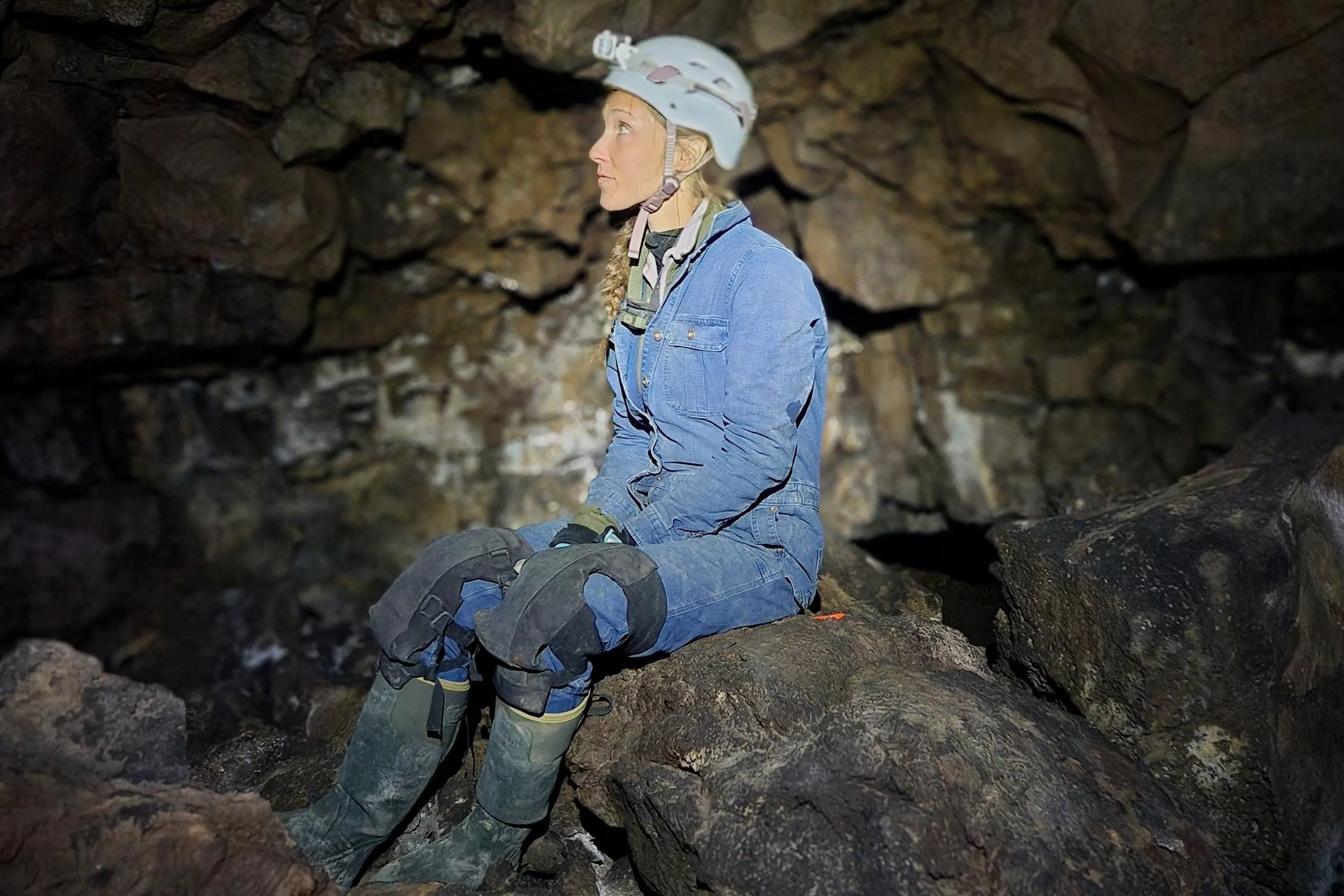
Nadja Schmidt, Bat Biologist
Nadja is a bat biologist and research analyst for the Northwest Bat Hub and serves as our resident bat nerd. Nadja received her BS in Natural Resources from OSU Cascades and minored in Español. Before joining the HERS Lab, she worked for the Forest Service, conducting MAPS surveys and monitoring spotted owls, bats, foxes, bumblebees, eagles, and goshawks. In her role as crew lead for the Sister’s Ranger District, Nadja led the effort for bat monitoring for the Deschutes National Forest. She planned and implemented cave surveys, mist netting, white-nose surveillance, acoustic surveys, and habitat enhancement/improvement projects. She has also participated in international bat capture projects in Guatemala and Panama for pre-construction wind farm surveys. Nadja is a call-vetting wizard, and handles all of the Bat Hub's vetting for NABat, year-round monitoring, and other projects.
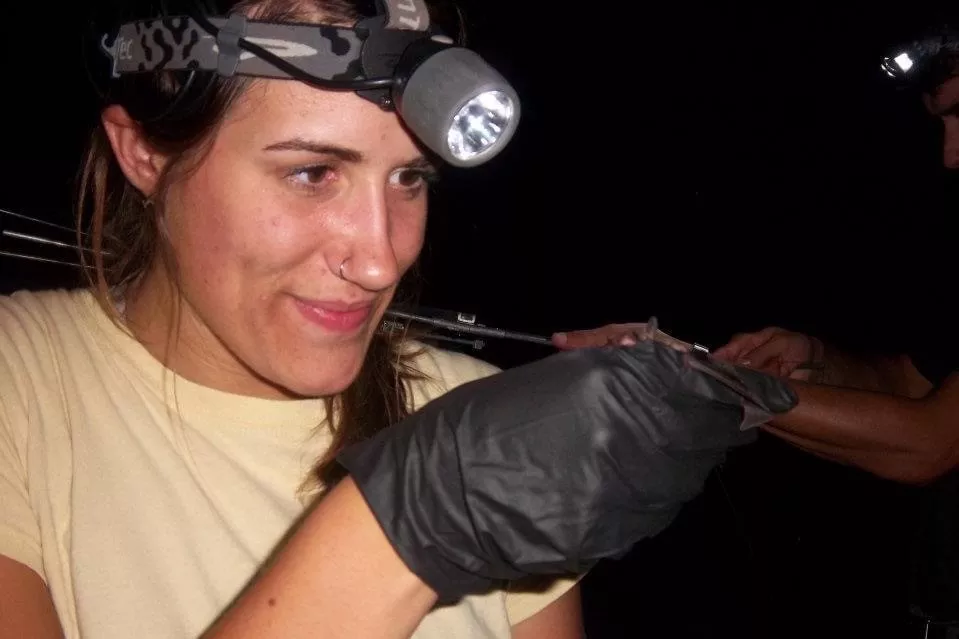
Beth Ward, Bat Hub Coordinator
Beth Ward is a Certified Wildlife Biologist® with a soft spot for creatures of the night. Her journey began at Radford University, where she earned a BS in Environmental Biology, and took flight during over a decade as an environmental consultant navigating ESA compliance for bats in the U.S. Her bat capture experience spans from the eastern‑U.S. to Central America, guided by a scientific curiosity that first took root in botany. Today, as the Bat Hub Coordinator, Beth leads collaborative efforts that bring together scientists, wildlife managers, and community partners to advance bat conservation across the Pacific Northwest. She is passionate about fostering interdisciplinary partnerships that bridge different sectors to create lasting conservation solutions for bats. When she’s not building bridges for bats, you’ll find her birding in the high desert or bopping around alpine trails in the Cascades.
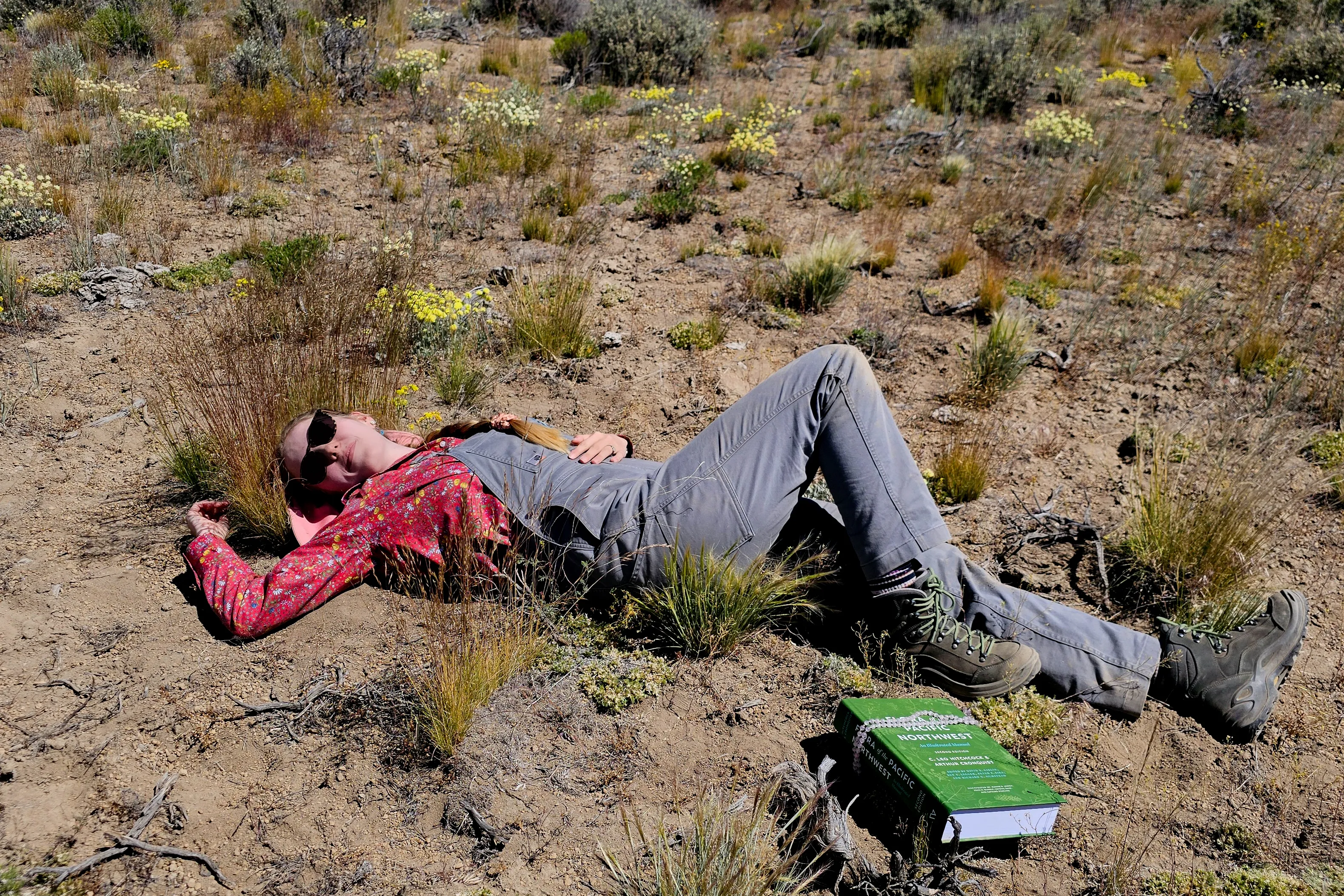
Hannah Johnson, Greenhouse Manager
Hannah joined the lab after a year of eavesdropping on plant hub projects and daydreaming about growing alongside them. Joining the team in 2024, she brought a contagious love of native flowers and a less contagious love of native grasses! Hannah earned her BS in Restoration Ecology at Utah State University, specializing in restoration research of native grasses and flexing her skills at national plant ID competitions. Before coming to the HERS lab, she broadened her plant skills working on rare plant surveys, herbarium management, oil well pad restoration, and native plant propagation. Hannah has made herself equally at home in the boisterous office as she is in the rangelands of Eastern Oregon. Her colleague has dubbed her "The Loquacious Wanderer," always roaming the sage steppe with copious plant observations and entertaining stories!
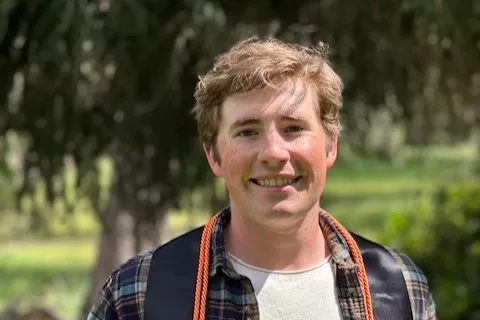
Noah Koker, Field Lead
Noah joined the HERS Lab in March 2024 as a member of our Wildlife Connectivity Hub, researching the effectiveness of wildlife crossing structures on the U.S. Highway 97 corridor. Before joining the lab full-time, he worked for ODFW at the Summer Lake Wildlife Refuge, banding waterfowl, conducting brood and shorebird surveys, and assisting with revegetation projects. Since earning his BS in Natural Resources with a focus on fish and wildlife, he has played a few different roles at the HERS Lab, jumping in wherever needed. These days, Noah serves as the Plant Hub’s field lead, working on monitoring projects, maintaining farm equipment, working with landowners, pulling weeds, and planting seeds. As a lifelong Bendite, Noah enjoys all manner of outdoor activities, no matter the time of year, including cross-country skiing, hiking, hunting, cmaping, and fishing.

David Cevallos, Postdoctoral Scholar
David is a postdoctoral scholar with a passion for restoration in arid and semi-arid ecosystems. He earned a PhD in Biology from Eötvös Loránd University, Hungary, and has a broad background in restoration across diverse dryland systems. Before his HERS era, David worked on restoration of dry island ecosystems in Galapagos and grasslands in Central Europe. At the lab, he tests restoration strategies, combining fieldwork with spatial and statistical analyses to integrate ecological data into decision-making. He aims to provide practical guidance for land managers working in dryland systems. David enjoys the indescribable mountain sunrises of Central Oregon, starting cold field mornings with a good cup of coffee, and the motivation that comes from contributing to ecological restoration in the high desert.

Matt Van Ess, Restoration Coordinator
Matt joined the HERS team in 2024 as our restoration coordinator, spearheading a multi-year sage steppe, riparian, and floodplain restoration project at the John Day Fossil Beds National Monument. Before becoming a HERSian, he led the efforts of the Columbia River Estuary Study Taskforce in Astoria, to design, implement, and monitor tidal reconnection and estuarine restoration projects benefiting migrating juvenile salmon. He has a Master’s in Community and Regional Planning from University of Oregon focused on coastal zone management in Pacific Islands using GIS. Matt hopes to expand HERS lab partnerships to continue large scale ecosystem restoration. Having moved to Bend, Matt now lives farther from the ocean than ever before. He has traded beachcombing and sea kayaking for snowboarding and river rafting.
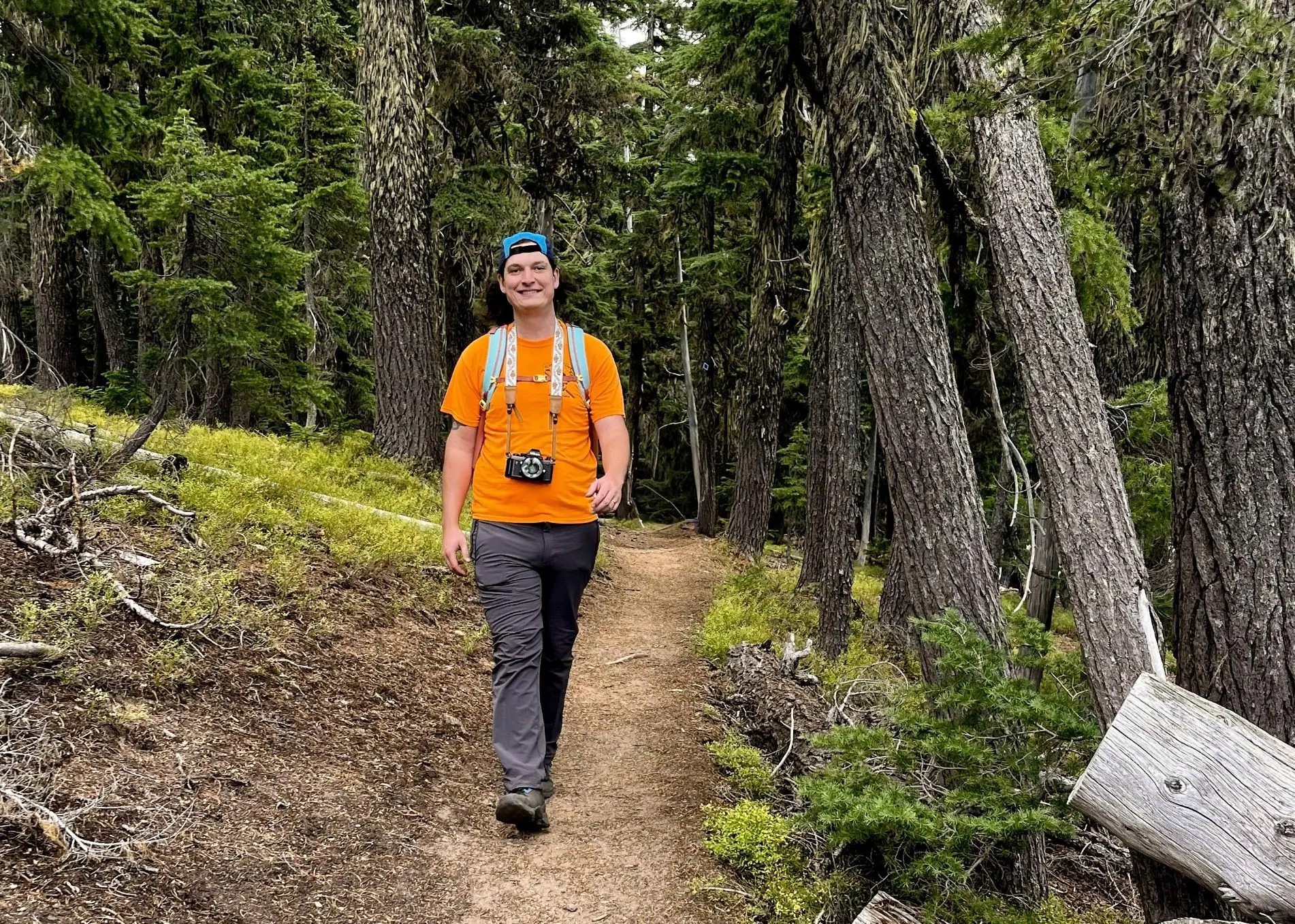
Alex Holmes, Camera Trap Project Lead
Alex is the newest member of our Wildlife Connectivity Hub. He comes to us with a lifelong interest in observing and preserving the natural world. Adding to our bevy of OSU-Cascades alums, this Louisianan lad has a bachelor’s in environmental science and seasonal experience trapping, assessing, and marking chub and trout in central Oregon. His focus now is on training a machine learning model for animal detections at wildlife crossing structures in Oregon. From setting and maintaining camera traps, to data management, to annotation, Alex is laying the groundwork for novel occupancy modeling methods to assess the efficacy of those structures. Outside of the office, he spends his time marveling at our big, western mountains and hanging with his wife and cats.

Dr. Tom Rodhouse, Senior Scientist
Tom is a senior scientist with over 30 years of experience as an ecologist in government, academic, non-profit, and private sectors. He has helped to spearhead the NABat Program, NPSage, Pikas in Peril, and the HERS Lab itself. Tom approaches ecological questions from a biogeographical perspective and focuses on the role of climate, fire, disease, and other forces on global and local patterns of species distribution and abundance. He has a particular interest in the processes of range dynamics - persistence, contraction, and biological invasion - and applies statistical models to bridge the gap between the production of scientific information and evidence-based decision-making. Tom also advises graduate students and post-doctoral researchers and teaches classes for multiple departments on the Cascades Campus.

Laura McMahon, Data Analyst
Laura joined the HERS team in 2026 as a research analyst, collaborating with the Data Analysis Unit to assist NPS Inventory and Monitoring with their project needs. Before joining HERS, she worked with state and federal agencies to monitor small and large critters ranging from meadow voles and woodrats to Channel Island foxes, spotted skunks, black bears, and California condors. She earned a B.S. in Fisheries and Wildlife Science from Oregon State University and a Master’s in Natural Resources from the University of Idaho, where her research focused on pygmy rabbit habitat selection. Laura is passionate about sharing her love of R and all things coding. Outside the office, she enjoys cross-country skiing, looking for rocks, and river rafting with her husband, as well as more stationary pursuits like searching for the next great romantic comedy novel and watching reality TV.
Hosted Partners

Devin Stucki (NPS), Botanist
Devin is an ecologist with the Upper Columbia Basin Inventory and Monitoring Network of the National Park Service, leading long-term terrestrial vegetation monitoring projects in Parks and protected areas in Oregon, Washington, Idaho, and Montana. Devin brings previous experience from work in forest management, fire effects monitoring, and wildland firefighting, along with expertise from an M.S in Forest Ecosystems and Society and a BS in Botany. His work with Inventory and Monitoring focuses on sagebrush steppe vegetation, aspen, pinyon pine, five-needle pines, rare plants, invasive species, fire effects, forest pest and pathogens, and more, all with an aim to help inform on-the-ground management decisions within the Parks. Devin also has research interests in traditional ecological knowledge, ephemeral macroinvertebrates, plant pathology, and non-vascular plants.
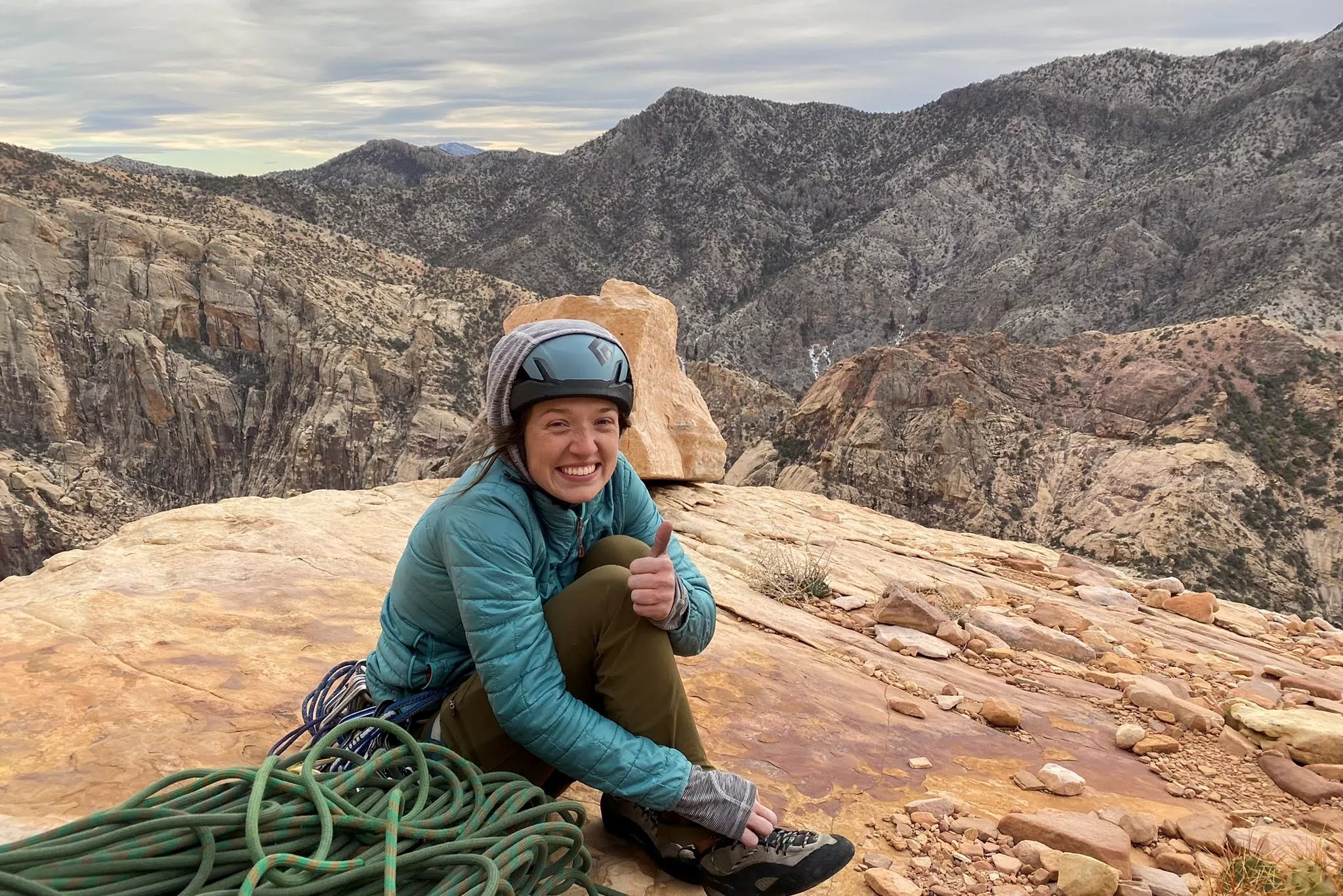
Sarah Barsch (NPS), Crew Lead
Sarah is a biological science technician for the National Park Service Upper Columbia Basin Network Inventory & Monitoring program. She is the crew lead for long-term monitoring of sagebrush steppe vegetation, rare plants, aspen stands, and limber and pinyon pine disease and population dynamics. She earned a BS in biological science with a concentration in ecology, evolution, biodiversity, and conservation from California Polytechnic State University in San Luis Obispo in 2021. Before working for the UCBN, Sarah’s professional experience with the National Park Service includes piloting field methods for assessing the impacts of plague on the American pika and associated small mammals, acoustic monitoring and white nose surveillance of bats, and monitoring upland shrub communities in the Mojave Desert.

Amy Alverson (NPS), Native Plant Biologist
Amy is a Native Plant Biologist with the National Park Service Upper Columbia Basin Network. She helps to coordinate the acquisition of native plant materials for future fire recovery efforts by training and leading seed collection crews throughout the sagebrush regions of eastern WA, OR, and ID. She earned a BS in Environmental Science from Loyola Marymount University in 2021. Before joining NPS, she worked on a seed collection crew in the Humbolt-Toiyabe National Forest in the Great Basin and as a crew lead for the California Botanic Garden in the Mojave Desert in California. Outside of seed collection, she has worked on southern California rare alpine plant seed banking, endemic Quercus durata var. gabrielensis conservation collection, and assisted with seed coating technology research for the restoration of native bunchgrasses to disturbed sagebrush habitat.